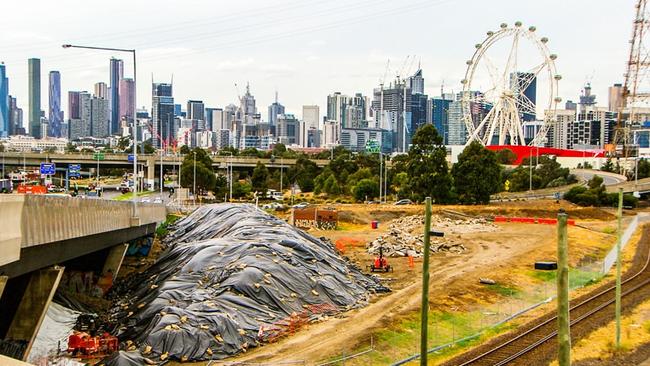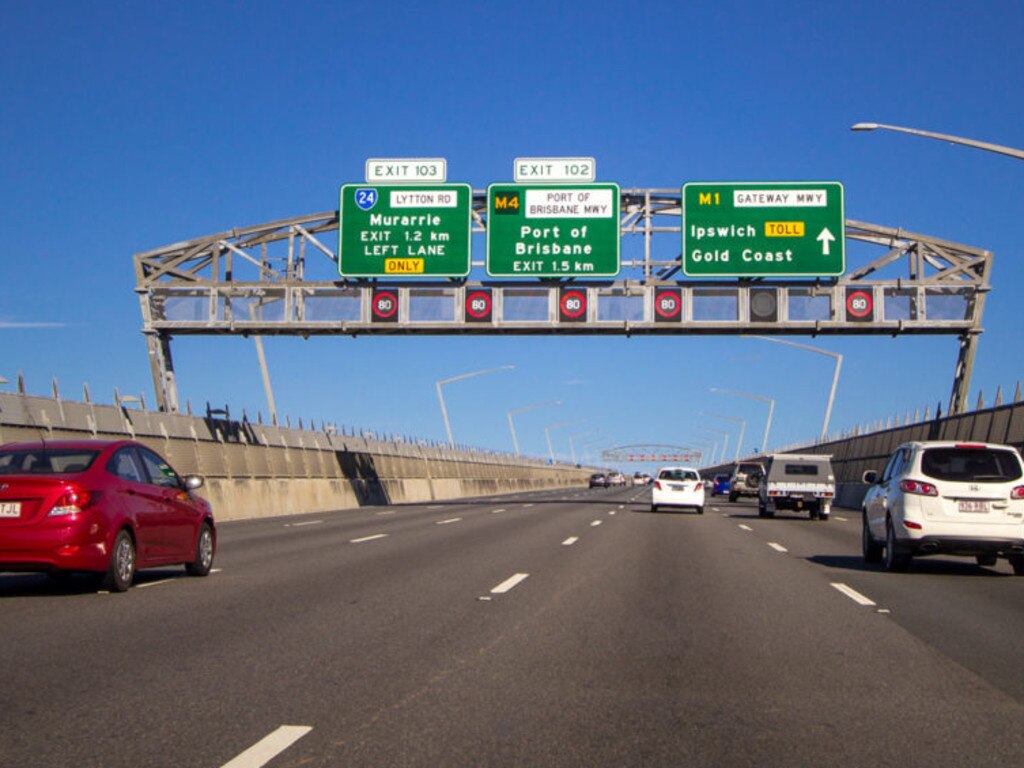New Westgate tunnel delay a blow for Andrews government
Melbourne’s $6.7bn West Gate Tunnel has been delayed until 2023 after an escalating dispute over contaminated soil derailed the project’s timeline.

Melbourne’s $6.7bn West Gate Tunnel has been delayed until 2023 after an escalating dispute over the handling of contaminated soil derailed the timeline, dealing a blow to Victorian Premier Daniel Andrews who had insisted the project would be delivered in 2022.
Toll road giant Transurban said on Monday the start of tunnelling on the project still required resolution on where the disposal site will be located along with resolving commercial issues with contractors.
“We remain committed to working with the state and the subcontractor to resolve the tunnelling issues,” Transurban said. “Proposed disposal sites are working through requirements to gain necessary planning and environmental approvals.”
Tunnelling has yet to start after originally being scheduled for mid-2019.
A delay in receiving tunnelling machines saw the start date put back to October and on January 30 contractors CPB and John Holland attempted to terminate their contract due to polyfluorinated alkyl substances, otherwise known as PFAS firefighting foam, found within the site.
Transurban had said it was hopeful of finding a solution to the contamination problem within the next few months, but said a suitable site had not yet been identified.
The Andrews government says it intends to hold Transurban to its contractual obligations and impose penalties for any late completion of the project, despite conceding the COVID-19 pandemic had caused additional delays.
Transport Infrastructure Minister Jacinta Allan said the government had a contract with Transurban to deliver the project, “and we absolutely intend to hold Transurban to that contract”.
“It’s been known for some time that there’s been some real challenges around the delivery of the West Gate Tunnel, particularly to do with the dispute the Transurban is having a dispute with its builders CPB and John Holland,” Ms Allan said.
“Their advice today that the pressure that’s been on the 2022 completion date has now (been) realised as a result of the additional strain of the coronavirus.
“We’ve made it obviously very clear, we intend to hold Transurban to that contract and what’s contained in that contract is that for every day that this project is not completed beyond 2022, Transurban will lose millions of dollars, so there’s a very key matter for Transurban to consider, as to how it resolves its dispute with its builders as quickly as possible to get those tunnel boring machines moving as quickly as possible, so this project can be completed as soon as possible.”
Victorian opposition transport infrastructure spokesman David Davis said the delay of the project’s completion date from 2022 to 2023 showed Labor could not manage major projects or money.
“(Transport Infrastructure Minister) Jacinta Allan promised this project would be delivered on time,” Mr Davis said.
“It clearly won’t be, with massive issues still remaining, including where to dump the toxic soil.”
Transurban said traffic is slowly returning to Australian roads with falls in April of 50-65 per cent on its Sydney and Melbourne toll roads easing in the last week as COVID-19 restrictions were loosened.
Average daily traffic in Melbourne plummeted by 65 per cent in the week starting April 12 while Sydney tumbled 51 per cent, marking the steepest declines since the pandemic forced the bulk of drivers to stay at home.
However, Melbourne improved slightly to record a 53 per cent decline in the week starting April 26 with Sydney down by 36 per cent.
Brisbane cratered by 51 per cent in the April 12 week and dropped 35 per cent in the final week of the month.
Still, tougher restrictions in North America continue to result in big falls.
Traffic dropped by 70 per cent in the week starting April 5 across its three roads in Washington and Montreal following mandated lockdowns, in line with peer toll road operators in Europe which fell between 60 and 80 per cent due to lockdowns.
North American traffic eased to 61 per cent in the final week of April.
Transurban’s overall traffic decreased by 44 per cent in the week starting April 26 after hitting a 57 per cent decline during mid-April.
Heavy truck traffic held up more strongly, down 13 per cent in Sydney and 20 per cent in Melbourne for the week starting April 26 after falls of 27 per cent and 36 per cent in mid-April.
“COVID-19 traffic impacts were observable from early March with traffic deteriorating then improving in the second half of April,” Transurban said.
“Traffic will remain sensitive to future government responses.”
The company has $3.5bn of funds available from April this year to the end of the 2021 financial year with $2.9bn committed through capital spending or debt refinancing. It raised an extra €600m ($1.08bn) in the European bond market on April 2.
The company abandoned its second-half dividend guidance on April 1 and UBS expects the 31c payout will be slashed to just 11c with only underlying cashflow to be paid.
The company may be forced to inject capital or seek debt covenant waivers for its private activity bonds as US road traffic tumbles amid the COVID-19 shutdown, Macquarie said this week.




To join the conversation, please log in. Don't have an account? Register
Join the conversation, you are commenting as Logout